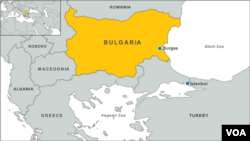Bulgaria's parliament paved the way for the introduction of compulsory voting in elections on Thursday, passing a draft bill to amend the electoral code at its first reading.
The center-right government believes making it mandatory for Bulgarians to vote will curb electoral fraud and boost the legitimacy of the Balkan country's political institutions.
European Union member Bulgaria has had five governments in less than three years. The last national election in 2014 saw the lowest turnout in 25 years, of about 51 percent, and produced a particularly fractured parliament.
The bill passed on Thursday would allow non-voters to be sanctioned, either with a fine of about 50 levs ($27.75) or by having their social benefits withdrawn for three months.
The amendments, approved by 121 votes to 27, will have to be voted on again, probably in late March.
Bulgaria is due to hold a presidential election in October and elect a new parliament in 2018.
"Compulsory voting would motivate more people to vote and we can expect bigger turnout," said Daniel Smilov, a political analyst at the Center for Liberal Strategies. "But it could limit smaller parties' chances to win seats at the parliament."
In 2013, voter frustration with rampant corruption and organized crime erupted into months of street protests.
Concerns about corruption and the judiciary have also kept Bulgaria and northern neighbor Romania out of the EU's borderless Schengen zone.





